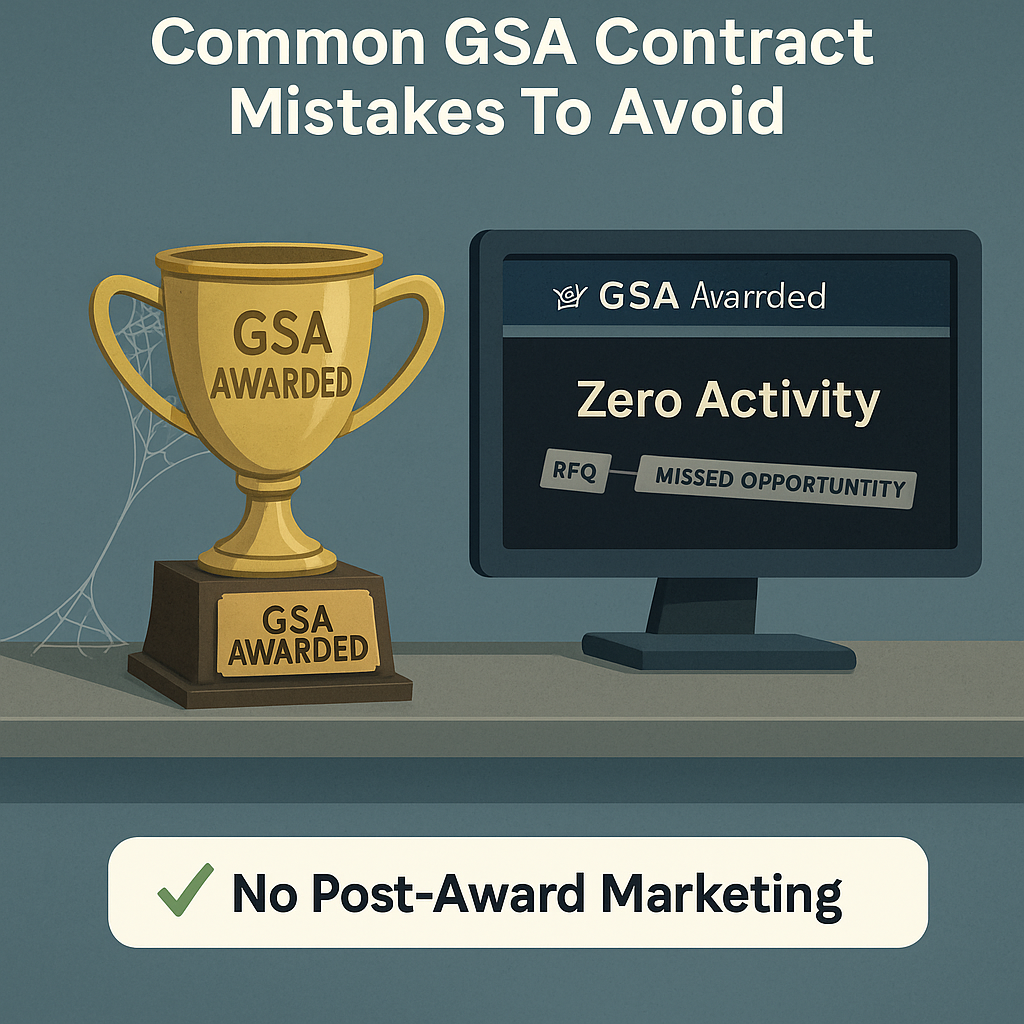5 Common
GSA Contract Mistakes...
& How to Avoid them
Avoiding GSA Contract mistakes can be the difference between winning federal business and wasting months on a rejected offer. Whether you’re new to the GSA Schedule program or preparing your first submission, this guide breaks down the most common errors small businesses make—and how to avoid them. From choosing the wrong Schedule to overpricing your services or skipping post-award marketing, these missteps can cost you big. Learn what contracting officers look for, how to stay compliant, and how to position your offer for success. If you’re serious about federal sales, start by avoiding these GSA Contract mistakes.

1. Choosing the Wrong GSA Schedule
New vendors often assume their services fit neatly into a category, only to realize too late they applied under the wrong Schedule or SIN (Special Item Number). If your service doesn’t match the scope language, the Contracting Officer will reject your entire offer—no matter how strong your experience is.
Avoid this: Always cross-check your service offering against the SIN descriptions in the GSA eLibrary. If it’s even slightly unclear, ask a specialist or dig deeper before submitting.

2. Trying to Do It All Yourself (DIY Trap)
The GSA proposal process is a beast. It’s paperwork-heavy, full of technical rules, and easy to mess up if you’re not used to it. A lot of businesses think, “We’re smart—we’ll figure it out.” That confidence quickly turns into 6 months of frustration and a rejection letter.
Avoid this: A qualified GSA consultant isn’t an expense—it’s insurance. They know what language reviewers expect, how to format documents, and how to avoid rejection triggers. Doing it yourself often costs more in lost time and missed opportunities.

3. Submitting a Sloppy or Incomplete Offer
GSA proposals aren’t casual. Every sentence, form, and file must align across your financials, price list, past performance, and corporate documents. Reviewers are trained to spot inconsistencies—and when they do, they’ll ask for clarifications or reject your offer outright.
Avoid this: Triple-check that your pricing, labor categories, and supporting documents match. Use the GSA’s templates exactly as requested. One typo in your Commercial Sales Practices form can set you back weeks.

4. Overpricing Your Services
You’re allowed to make a profit—but price too high, and your offer will either get rejected or you’ll win the contract and lose every bid that follows. GSA buyers compare you against other vendors on GSA Advantage and eBuy. They know the range. If you don’t, you’re toast.
Avoid this: Use tools like GSA eLibrary and CALC to benchmark your rates. Price for long-term margin—not short-term cash grabs. You want to stay in the “Competitive & Compliant” zone.

5. Failing to Market After Award
Winning a GSA Schedule doesn’t mean buyers will find you. If you don’t promote your contract, respond to RFQs, or engage with agencies, your Schedule will sit unused—and could even be canceled for low sales.
Avoid this: Develop a post-award marketing plan. Register on GSA Advantage, set up your Vendor Support Center profile, and monitor eBuy for opportunities. If you’re not marketing your GSA services, you’re invisible.
Don't Have a GSA Contract Yet?
If this is the case … you’re in the right place.
GSAFocus has served 600+ clients with a 98% satisfaction rate… a refund guarantee… and an average 87x ROI.


